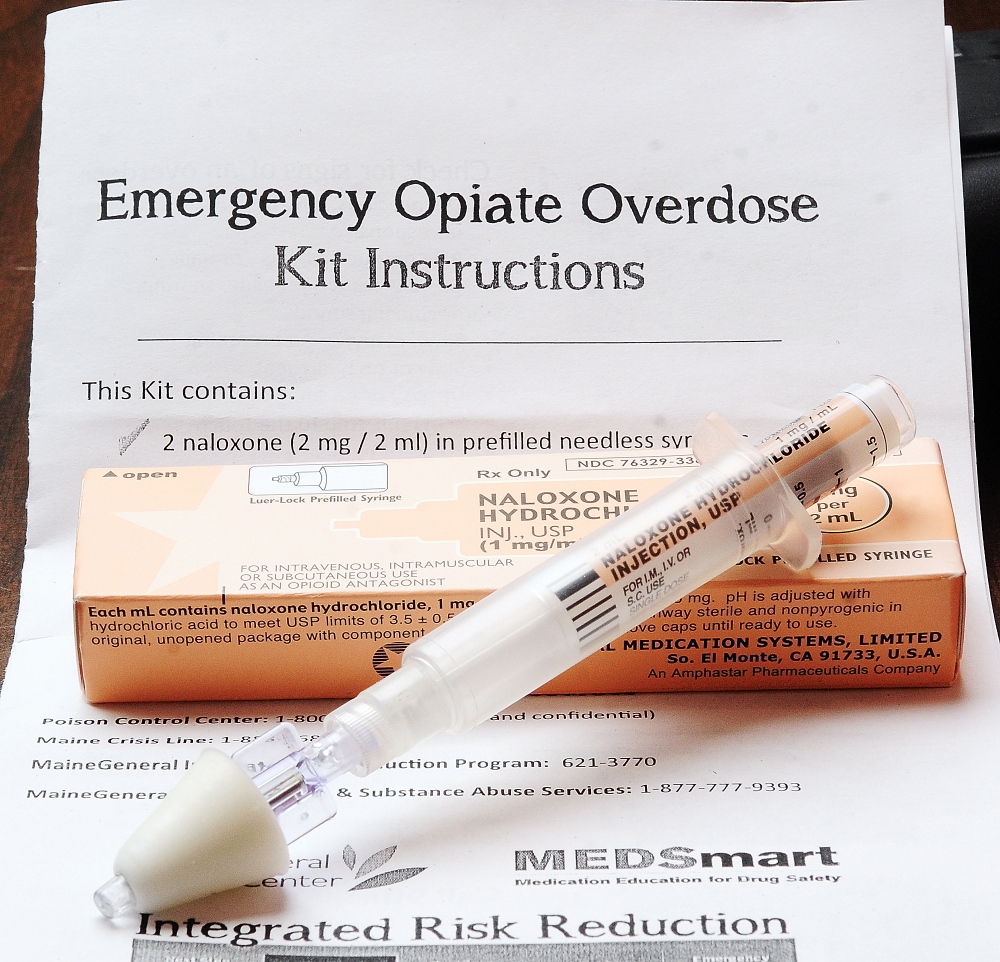The group that regulates Maine pharmacies is asking state lawmakers to revisit a law that was passed last spring with the goal of allowing over-the-counter sales of naloxone, a drug that reverses the effects of an opiate overdose and that can’t be sold to individuals now without permission from a physician.
At the same time, supporters of the law are relieved the Maine Board of Pharmacy finally has begun discussing the rules, but some are frustrated it has taken so long.
Passed in late April, the law directed the Board of Pharmacy to approve rules for pharmacists hoping to sell naloxone, commonly known by its brand name Narcan. It gave the board until July 1, 2017, to create the rules.
On Thursday, during the Board of Pharmacy’s December meeting, members began discussing the legislation.
“It’s certainly about time,” said Kenney Miller, a co-signer of the September letter and executive director of the Health Equity Alliance, a statewide harm-reduction organization with offices in Augusta, Bangor, Ellsworth and Machias. “It’s months after the (legislative) session ended. In the meantime, we’ve seen report after report of overdose death rates continuing to climb.”
It’s still an open question whether the Board of Pharmacy will implement quickly the rules outlined in the naloxone law passed last April.
When the group met last week, several staff and board members said they were confused about the law’s intentions and wanted clarification from the lawmakers who sponsored it. Board members raised several questions, including whether pharmacists could have a right to refuse to sell naloxone, whether they would have to administer naloxone to customers and whether there should be age limits on who can buy it.
But the most confusing part of the law, according to pharmacy board President Joe Bruno and others, is a sentence in the bill that seems to contradict the stated goals of its authors.
The sponsors of the law, L.D. 1547, hoped it would allow pharmacists to sell naloxone without a prescription, making it more accessible to drug addicts and those who might be in a position to save them.
The law earned support from public health groups, police officers, physicians, harm reduction advocates and recovered drug users, among others. Gov Paul LePage vetoed the bill – arguing that naloxone only “perpetuates the cycle of addiction” – but lawmakers overrode his veto with a 132-14 vote in the House and a 29-5 vote in the Senate.
Members of the Board of Pharmacy were confused about whether the language of L.D. 1547 actually legally directed them to create rules for Maine pharmacists to sell the drug over the counter.
The governor appoints the Board of Pharmacy’s seven members, all but two of whom are licensed pharmacists. Their tasks include licensing individual pharmacists, considering different prescribing rules and disciplining those who have broken rules.
One sentence in the law directs the Board of Pharmacy to “establish procedures and standards for authorizing pharmacists to dispense” naloxone.
But the next sentence confused several board members. It directs the board to establish “training requirements and protocols” for pharmacists to dispense naloxone “by prescription drug order or standing order or pursuant to a collaborative practice agreement.”
According to Bruno, Maine pharmacists already can dispense naloxone when a physician has allowed it, whether through a prescription, a standing order or a collaborative practice agreement. All three are administrative ways for physicians to authorize a drug’s distribution.
“We don’t know legislative intent,” Bruno said. “It’s a poorly written bill, personally. It looks like it was cut and pasted from some other state.”
Send questions/comments to the editors.





Success. Please wait for the page to reload. If the page does not reload within 5 seconds, please refresh the page.
Enter your email and password to access comments.
Hi, to comment on stories you must . This profile is in addition to your subscription and website login.
Already have a commenting profile? .
Invalid username/password.
Please check your email to confirm and complete your registration.
Only subscribers are eligible to post comments. Please subscribe or login first for digital access. Here’s why.
Use the form below to reset your password. When you've submitted your account email, we will send an email with a reset code.